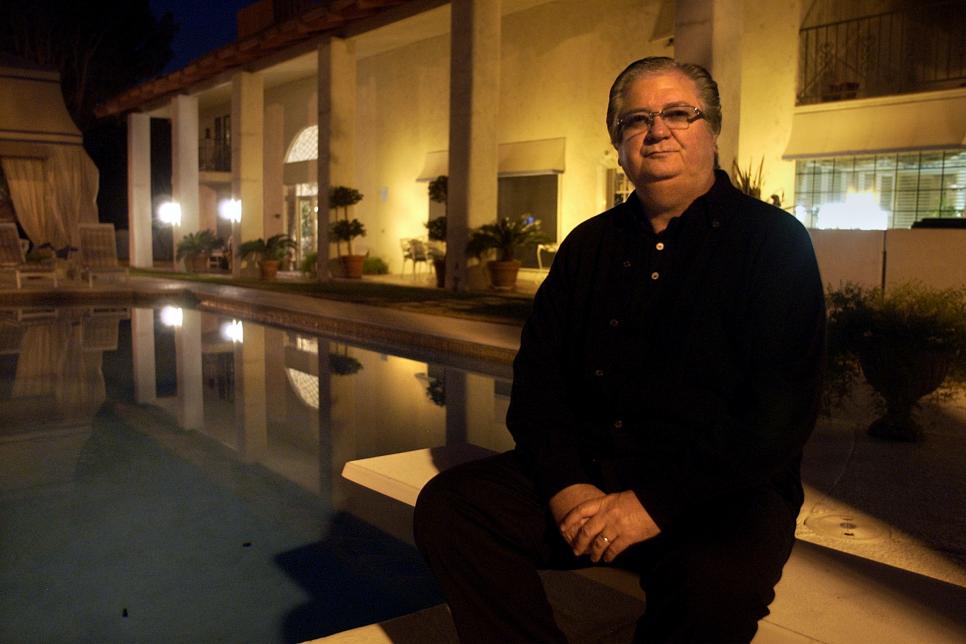High Stakes
‘That was a $20,000 bet for me’: How high-rollers gamble on major tournaments

Some golf hustlers will steal your money on the course. That’s one way to gamble at the game. Then there are those who crush golf without needing to step outside. An abundance of statistics, online-wagering options and enhanced computer technology have all contributed to opening the door for an expanding breed of golf gambler: High-stakes gamblers who might place more than $100,000 into action each week.
During the Masters, their investment portfolios—loaded with golf bets instead of tech stocks—tend to swell. Such is the case for Rufus Peabody, a 36-year-old high-stakes gambler with an economics degree from Yale. Last year he had $1.6 million in action during the Masters, and he’ll likely reach that this year—and anticipates a 5-percent return.
“Overall, golf is not as efficient as the NFL and college football, and you have a much longer season,” says Peabody, who is based in Las Vegas. “I put all my energy into the NFL and get in only 272 games. No matter how good of an NFL bettor you are, you have a lot of fluctuations because of the small sample size.”
Peabody—who also oversees all data science at Unabated, a company which provides stat-derived tools that sports bettors can purchase—uses computer modeling to devise his bets. At last week’s Valero Texas Open, his modeling identified J.J. Spaun, who had pre-tournament odds of 200-1. Peabody and his team also doubled down after Friday—when Spaun’s odds were still 35-1—and again after the third round at +650 odds (you’d win $650 from a $100 bet). But Peabody places mostly matchup bets and top-10 and top-20 markets. Information is fed into the program, and as many as 300,000 simulations of a match get executed.

Rufus Peabody, a Yale economics graduate, is among many who rely on advanced analytics to identify value in golf betting.
W
During the Masters, Peabody—also an avid golfer with a 7.5 handicap—will be monitoring in-tournament wagering opportunities, but he also makes sure to enjoy the week.
“Most of the time, I am just watching rather than being productive,” he says. “My brother does most of the logging of bets. It frees me up for R&D.”
On the contrary, some prefer a more old-school approach—yes, with pencils, pads and hard drives—over the Internet. In fact, Billy Baxter (opening photo), a legendary figure in the world of professional gambling, evidenced by successes he’s had at everything from poker and gin to tennis and boxing, might not even spend much time writing things down.
“I don’t crunch numbers with golf,” says Baxter, 82, with a laugh. “You see who is doing well and bet accordingly. It’s not rocket science.”
Maybe not rocket science, but for Baxter, who attended the Masters in person for 50 years, stopped going recently but bets the entire field with a fellow gambler—it is a matter of out-observing the bookies.
“Once something is in progress,” he says, “I usually can determine the winner better than anyone else. You watch and you notice something that other people missed. One thing about golf is that a guy can play bad for six months and suddenly he figures something out. You want to recognize that before the guy goes from making bogeys to birdies. By then, everybody knows it.”
For Baxter, who lives in Vegas and says he bets on golf every week, it’s also a matter of keeping his ears open: “My son was going to tennis camp and his coach there came from Spain. He told me about Nick Faldo [who won the Peugeot Spanish Open in 1987]. I bet on him when he won the Masters two years in a row [in 1989 and ‘90].”
Fellow PGA Tour luddite Logan Fields, another old soul, acknowledges how guys with computers could have derailed him.
“For the first 11 years, from 1999 until 2010, I looked at the course and how players played and I came up with lines between two golfers,” says Fields, 57, who resides in Orange County, Calif. “Then, in 2011, the lines got much tighter. I couldn’t find value and I couldn’t win. That was [due to] the arrival of Rufus and guys like him. They would bet into the lines very early and suck out value.”
Golf got tough, and Fields, author of 20/20 Sports Betting: Think Like a Pro, adjusted. “Now I look for opportunities that computer models do not pick up,” he says, adding that higher limits and more places in which to wager help make his job easier. “I follow Twitter and pay attention to interviews. A guy on the Golf Channel talks about being in physical therapy and that might be tough for a computer model to notice.”
Citing an example of his research, Fields—who will “look at” 50 to 200 matchups for the Masters—recalls reading an interview with European Tour pro Chris Wood:“He talked about being in tears due to neck pain. When a man is in tears 12 hours before his tee time, I will bet everything I can against him. That was a $20,000 play for me. I will go nuts fading him everywhere and every way I can.”
Will Saramek, a professional gambler who provided his online pseudonym, which he uses to extend longevity in casinos (he built his original bankroll by playing blackjack at an advantage), got into golf betting through something of a side door: daily fantasy sports.
“When DraftKings came across my radar like seven years ago, it was a new market and seemed soft,” says Saramek, who had been looking for a way to break into sports betting without having too costly of a learning curve. “I couldn’t beat mature betting markets like NFL spreads, wagering on whether the Patriots will win against the 49ers. There were already too many knowledgeable people solving that problem. Golf DFS was more of a niche, where I thought I could be profitable within a year.”
It worked. DFS sees bettors putting together lineups of six players. Once on the course, they get points based on performance (birdies, bogeys, streaks, etc.). Whichever lineup accumulates the most points wins the tournament.
Saramek, 36, who relocated to southeast Asia (his betting is done by a partner in the U.K.), puts in as many as 150 different lineups, spend six figures per week, and hopes for the best. He uses a computer model similar to that of Rufus Peabody and tunes it for DFS as well as one-on-ones.
He maintains a lifestyle that sounds more worthy of a CPA than a pro gambler. Usually out of bed by 6:15 a.m., Saramek begins his day with a bit of yoga and hits his office (yes, serious sports-bettors maintain offices) by 8. “I code for five hours, finding new things to put into our program,” he says, adding that he aims for a 5-percent return per week from golf. “Then, at around 1:00, I relax, have lunch, exercise. For the rest of the afternoon, I do administrative tasks and things that don’t use so much brainpower. Maybe I’ll rerun my code and make sure the model is looking after what’s going on.
“You have to keep improving. Or else the market catches up and your living gets taken away.”

Will Saramek gambles hundreds of thousands of dollars on fantasy golf per week.
Relying on stats and software, Saramek does not watch what he bets on. “This is stressful enough,” he says, referring to everything from making lines to getting down at good prices to finding bugs in the model and fixing them. “But for me to watch a guy miss a putt that costs me five figures? It would leave me drained of the energy to do my real work here.”